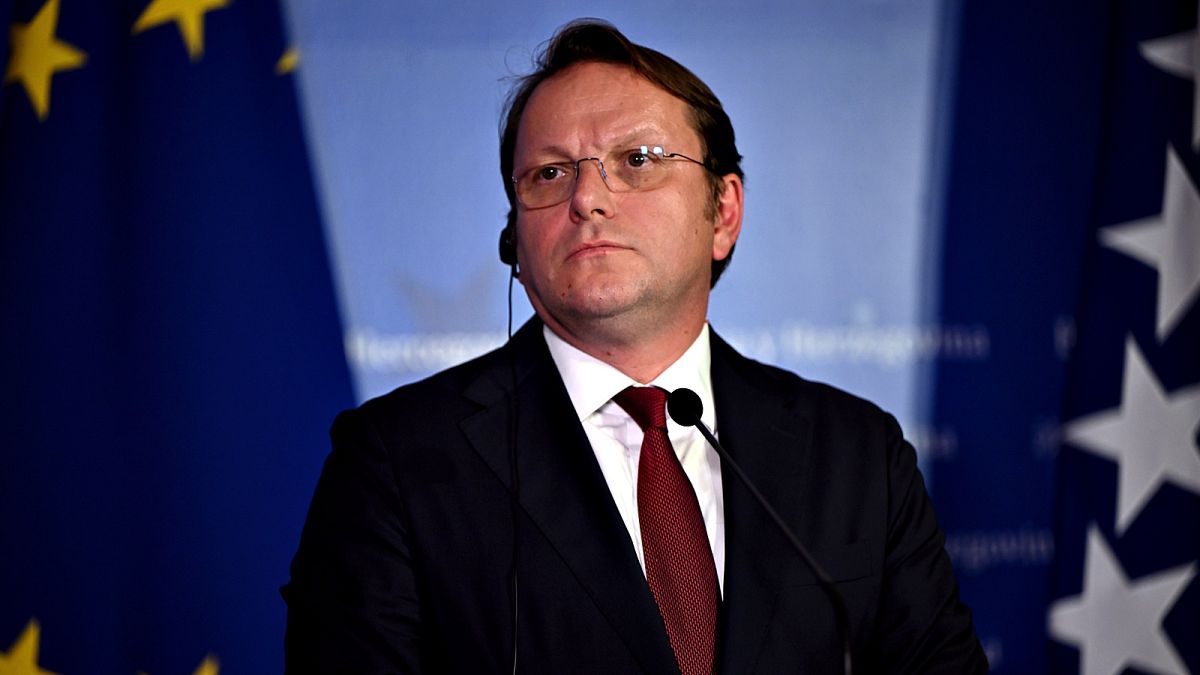Oliver Várhelyi, who currently serves as Commissioner for Neighbourhood and Enlargement, has been selected as Hungary’s nominee for European Commissioner by Viktor Orbán. This decision comes despite Várhelyi’s controversial track record during his five years in Brussels. Orbán announced the news following a consultation with Ursula von der Leyen, who was re-elected as president of the European Commission. Von der Leyen will have the final say in assigning policy portfolios and structuring the executive. Capitals have until August 30 to communicate their picks, but many have already chosen a nominee, regardless of the male-female duo requirement set by von der Leyen.
Orbán praised Várhelyi’s past work in the EU, stating that he has proven the EU’s ability to make a positive impact in its neighborhood and beyond. Várhelyi expressed his gratitude for the nomination and looks forward to continuing his work with President von der Leyen. However, Várhelyi’s confirmation will be subject to a hearing at the European Parliament, where he has faced criticism for aligning his views with Orbán’s government instead of following the Commission’s official line. With doubts about his confirmation, speculation suggests that Orbán may have a Plan B nominee waiting in the wings in case Várhelyi’s bid is rejected by MEPs.
Várhelyi’s appointment as Hungary’s nominee is not guaranteed due to his controversial past. He has faced several instances of scrutiny during his time in Brussels, with accusations of breaching the Commission’s code of conduct and making controversial statements. These incidents include downplaying Serbia’s rule-of-law issues, making inappropriate remarks during a parliamentary debate, suspending payments to the Palestinian authorities without consultation, and being accused of blackmail by the Georgian Prime Minister. Despite Várhelyi’s defense of these actions, they have resurfaced as points of contention as he faces potential confirmation by the European Parliament.
The controversy surrounding Várhelyi’s nomination is further heightened by Hungary’s political landscape. Orbán’s Fidesz party has shifted from the center-right EPP to the far-right Patriots for Europe, isolating themselves from centrist parties. This shift has raised concerns about Hungary’s alignment with EU values and principles. Várhelyi’s nomination reflects this political divide and raises questions about Hungary’s commitment to the EU’s agenda.
Várhelyi’s track record and potential confirmation hearing will be closely watched as he seeks to become Hungary’s representative in the European Commission. His controversial past and alignment with Orbán’s government have raised doubts about his suitability for the role, with MEPs likely to scrutinize his actions and statements during the hearing. Orbán’s decision to nominate Várhelyi despite these controversies underscores Hungary’s political stance and its relationship with the EU. As the confirmation process unfolds, the outcome will shed light on the future dynamics between Hungary and the European Commission.











